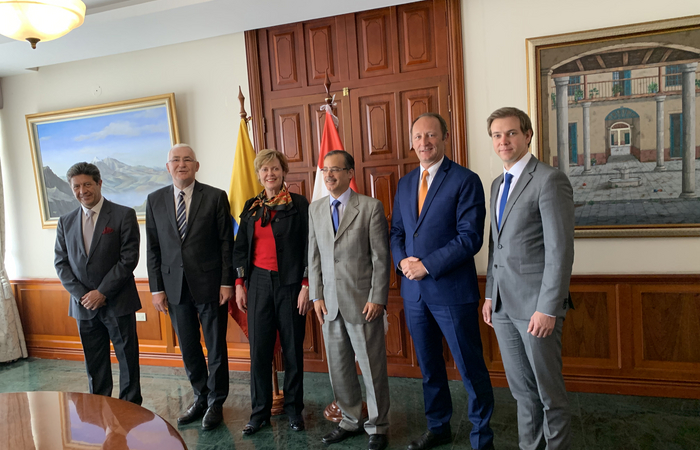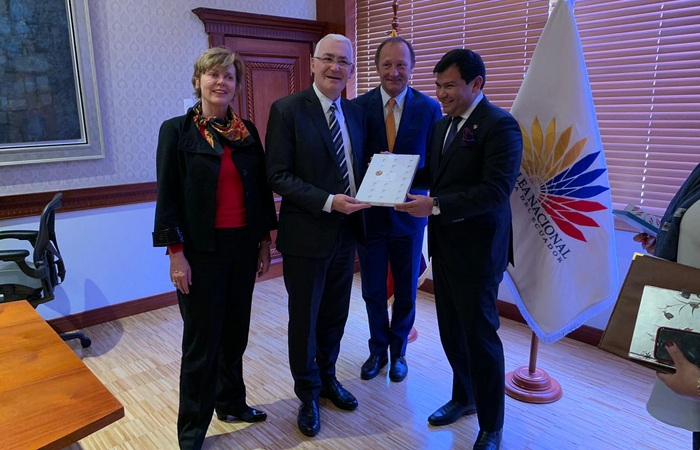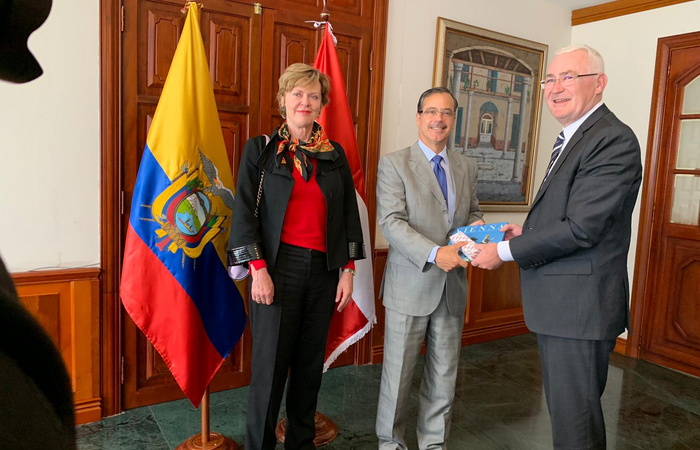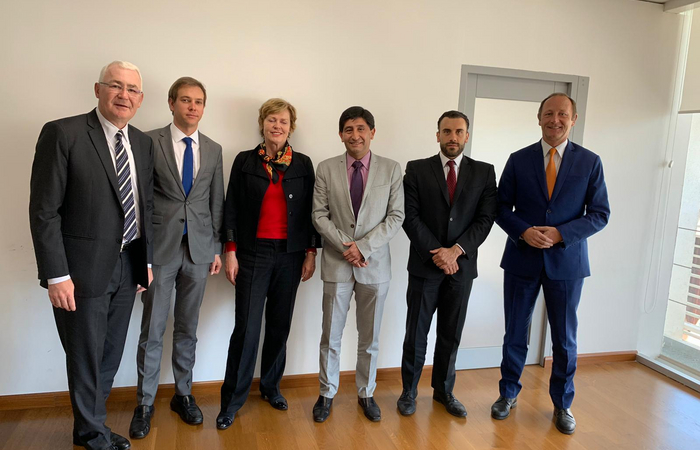Ratification of the Andes Agreement
Colombia and Ecuador
In the course of the ratification of the Andes Agreement by various institutions in Colombia and Ecuador, the representative for Latin American affairs of the FPÖ Political Academy, Martin Graf, was invited to visit the two countries. Because Graf is also a member of the Parliamentary Assembly of the Council of Europe (PACE), UNHCR/ACNUR (La Agencia de la ONU para los Refugiados) invited him to Cucuta — at the border of Venezuela — for a fact-finding mission.
The trip was initiated in the interests of parliamentary diplomacy as well as education and the expansion and deepening of relationships between policymakers, institutions and NGOs in the region. The embassies of the visited countries as well as the competent offices of the Austrian Federal Ministry of Europe, Integration and Foreign Affairs (BMeiA) and the local Austrian embassy were consulted in advance to plan the schedule. Alongside forging and deepening relationships with representatives of the parties, the visit focused on diplomacy with the countries of the region. This trip was extensively supported both by the BMeiA and the local embassies of both countries in Austria.
Its purpose in the area of education was to explain the political positions and activities of the FPÖ, to formulate perspectives (including in the context of current EU politics), to learn first-hand about local political positions and to use personal encounters and discussions to raise awareness of matters of international policy that should eventually contribute to enhancing the international orientation of Austria and improving the understanding of states and statehood in Latin America.
Colombia
In Bogotá, Colombia, visits were paid to the senate president (Presidente Senador Lidio Arturo Garcia Turbay), various senators, congressional representatives and the embassy of the European Delegation and the headquarters of the UNHCR for animated discussions of such issues as refugees, bilateral and multilateral relationships, foreign policy and domestic policy. Meetings were also held with representatives of civil society (Austrians living abroad), the Uniempresarial (private university) and the Camera de Comercio de Bogota.
The visit to the border of Venezuela and the refugee camp in Cucuta (one of the hot spots of the refugee crises) organized by the UNHCR offered a very dramatic look at the national and international administration and the situation of Venezuelan refugees in Colombia. Every day in Cucuta, 45,000 people cross the border, and this camp is the last stop for roughly 5,000 refugees every day.
In Cartagena, meetings were held with representatives of the city administration (Municipalidat) and the Chamber of Commerce. During a tour of the oil and container port, we were able to get a picture of the economic power of Colombia.
Ecuador
In the vicinity of Quito, Graf visited the school European Colegio Pachamama (kindergarten to graduation, currently 500 students), where he was able to learn about the quality of this school founded and run by Austrians.
In Quito, he met with the senate president (Presidente Cesar Ernesto Litardo Caidedo) and various government representatives (including Vice Minister of Foreign Affairs Andres Teran). The lively discussion focused on the topics of refugees as well as economic relationships and cooperation within the international organizations such as the Interparliamentary Union (iPU) and science policy.
The visits to the Universidad International del Ecuador (UIDE), the equator monument and Cotopaxi National Park rounded out the trip, offering additional impressions of the country and its people.



